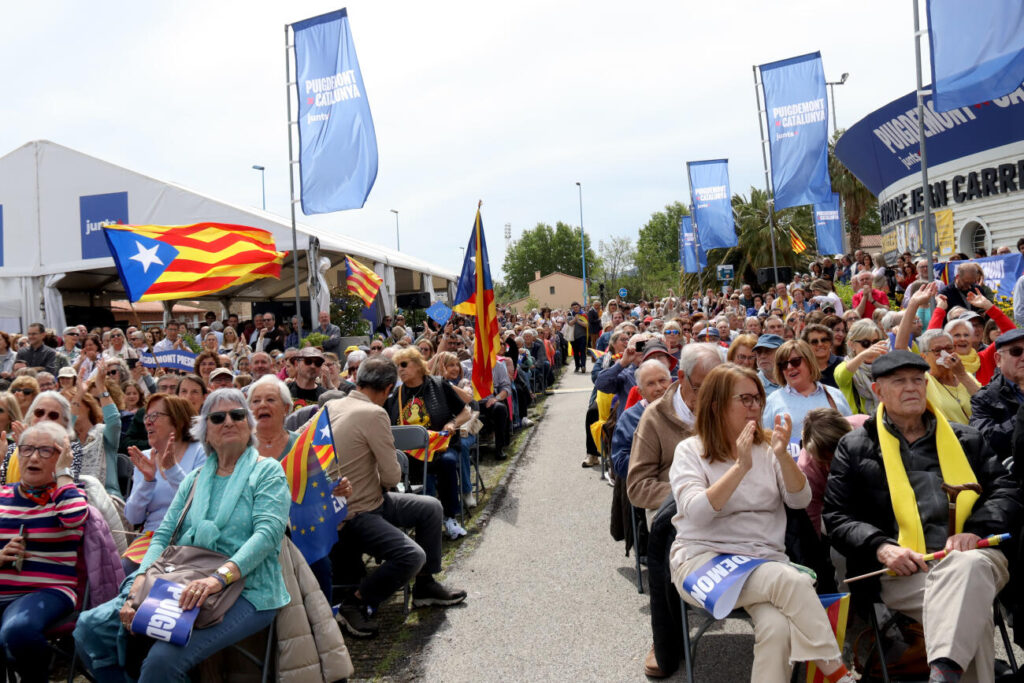In this world that has become incomprehensible, complex, disorganized and at risk of global confrontations, which respond primarily to the geopolitical interests of the great powers. Obviously, we leave aside the focused confrontations, such as the Russian-Ukrainian war, and the genocidal “war” that the far-right Netanyahu government is waging against the Palestinian people in the Gaza Strip.
The Israeli government’s pretext is to liquidate those responsible for the criminal attack carried out by the Hamas terrorist movement on October 7 of last year. But this situation unexpectedly escalated in the Middle East, due to the Israeli attack on the Iranian diplomatic compound in Syria. The confrontation between Iran and Israel is taking on more dangerous aspects for the region. Warning is given of a possible war of restructuring and regional hegemony by these two military powers.
There is nothing good for peace in this geographical area, let alone peace in other regions (in Europe, for example) and on a planetary scale.
An anti-democratic wave is sweeping the world: the far-right wave
On the international scene, especially in Europe, Latin America and the USA (also in the Middle East as in the case of the Zionist Netanyahu government in Israel), new political actors are being consolidated, in other words the so-called “new right”, embodied by the extreme right, or The far-right, the authoritarian, the ultra-conservative, the nationalist regimes. This new right, as some analysts call it, which, in our opinion, has nothing new, is advancing relentlessly in politics, first in competition with the traditional liberal-conservative right, taking from it representational priority in politics. Politics is electoral, and then in the imagination of other social sectors – not necessarily conservative – of weak, excluded, and frustrated social classes, socially and economically.
We note, in many case studies in European experiences, that some far-right parties have made serious progress in the electoral and social political field. The far right is slowly walking away from the political representation of the old conservative right, and more and more often succumbing to the charms of the upward march of this new right. The cordon sanitaire imposed by the traditional right and progressive forces on the Old Continent, which aimed to isolate the extreme right, has only succeeded in Germany – for the time being. Therefore, we see that these extreme right-wing political expressions are alternative governments or that they participate in many European countries, such as the case of Italy, Hungary, and even for a short period in Poland.
As Cristobal Rovira Kaltwasser points out, in a recommended study on “The Far Right in Latin America: Definitions and Interpretations” (Friedrich Ebert-Stiftung Chile Edition, 2023) “…the far right in general is highly critical of the traditional right and usually deals with the dominance of it, Increasing degrees of cooperation – both implicit and explicit – between the two can be observed in some Western European countries. For example, Austria, Denmark, Finland, the Netherlands, Italy, Norway and Sweden have had governments in which the far right officially participates or tolerates the formation of a minority government.
What are these global far-right proposals?
Without going into an analysis of each of the so-called far-right ideology, according to the authors of the book “The Far Right in Latin America” (Le Monde Diplomatique, Diplo, Buenos Aires, 2023), it would be as follows: glorifying individualism; Reaction and denial of progressive progress, with regard to gender equality, minority rights, racism and homophobia; The radical anti-immigration stance; The project of rebuilding patriarchy; Renewed anti-communism. Strict security and crime policies; The poetic radiation of hatred as a strategy for political construction, thus an ambush of democracy itself, beyond its failures and degradation. Because of his policies and proposals, which have unfortunately begun to become normalized in the political space of Western countries, this expression of the extreme right becomes a profound threat to the democratic system and its political coexistence.
Ultradreta to the Americas
The phenomenon of the far right, authoritarian governments, far-right populism and nationalist dictatorships that represent an undeniable reality in the Americas has already been analyzed and observed. The presence of these political forces is increasing in the political scene of the countries of our continent.
By analogy with the phrase: “When we got the answers, our questions changed,” we can point out that: “When we said goodbye to two far-right extremists who were obstructing the governments of Trump and Bolsonaro, and others appeared before us.” In fact, these new exponents of the far right in Latin America, we have Nayib Bukele in El Salvador, Rodrigo Chavez in Costa Rica, Daniel Novoa in Ecuador, and Javier Miley in Argentina. Maybe we can have Donald Trump back in the White House in November. In other countries, such as Chile, the far right, embodied by José Antonio Caste, founder of the Republican Party, has shown sustained growth and subjugated the traditional right on two occasions, forcing them to support their leadership as in the second presidential term in December 2021 and in the election of the Constitutional Council on May 7 of last year.
The far right invades the Americas by force and attacks democracy without conviction: a scenario that is not at all encouraging for democracies on the continent.
Colophon data
At the global level, in the European case, the real test of the far-right’s weight will be the European Parliament elections from June 6 to 9 this year. The results of these elections will show the new political council in the European Union between the traditional families of, let us say, the Christian Democrats and the traditional right, the social democrats and socialists, the so-called non-socialist democratic left, and this “new” “far right and extreme right.”
The fertile ground for this dizzying rise of the extreme right on a global scale is the crisis of democratic systems, traditional political parties, state institutions (executive, parliamentary and judicial), the crisis of public security, and the crisis of transnational organizations. a crime. It is perceived that democracy does not provide answers to social demands, especially to the huge gap in social, economic and political inequality. The “bomb” of wealth, in the words of Peter Turchin from his book Final De Partida. Elites and counter-elites, and the path to political disintegration, cause severe and serious harm to democracy, and thus to the democratic political system and its institutions.
Finally, there is a widespread political view that far-right responses to the problems unfolding in democratic societies – which are real and need to be solved – are entirely insubstantial, lacking coherence and conceptual density. However, the progressive forces, the democratic left in all its aspects, social democracy and the rare democratic political right that still exists, must confront this danger from the far right in a united and programmatic way. In this regard, there is a great conceptual imperative for a political and social understanding of this political force that is brutally exploding in the social landscape of democratic states.

“Freelance social media evangelist. Organizer. Certified student. Music maven.”










